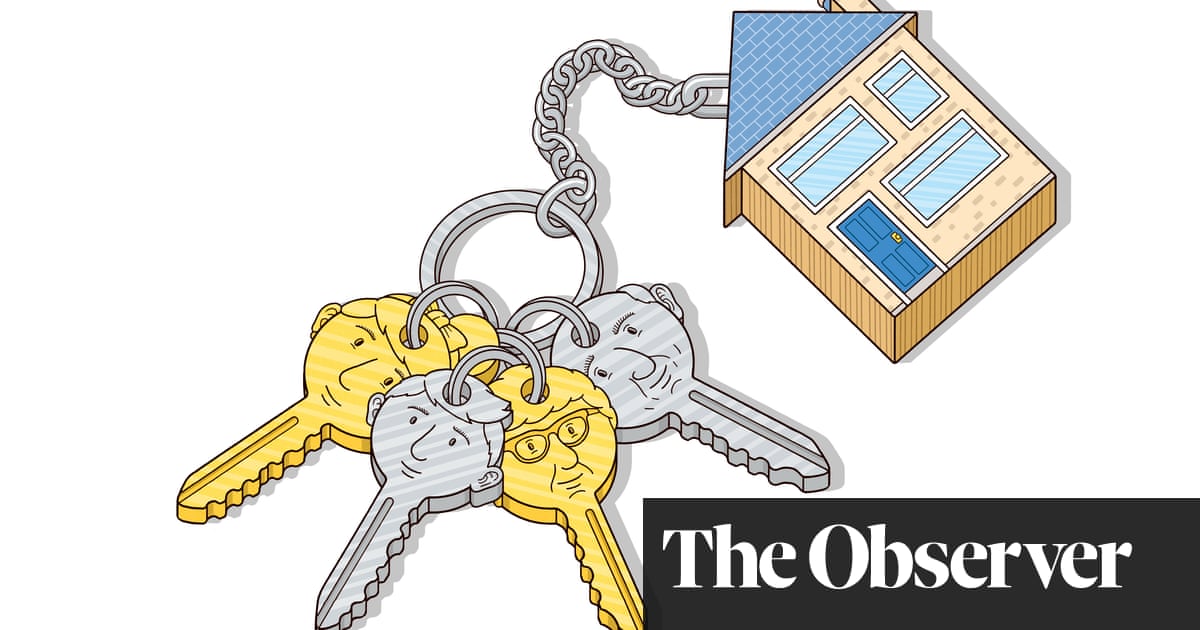
he supposedly looming return to normality – whatever that is – may have almost squashed the hopes of a more equal, mutual-aiding, communitarian country that briefly flared to life during the first lockdown. But for those lucky enough to have a job that can just about be done without leaving the house, perhaps one alleged source of optimism still burns bright.
Big companies seem more open than ever to the idea of homeworking arrangements staying in place even after the worst of the pandemic is over and restrictions are lifted, and for some people the old grind of commuting and congregating in offices may at least partially be over. What this could mean for the smaller businesses that depend on the presence of large employers is clear from our emptied-out city centres, but “hybrid working” is the season’s most fashionable corporate concept, often talked up in the same la-di-da tones as all those lockdown-based articles about Zoom fatigue and the trials of baking bread.
In more sober tones, the Financial Times recently reported that some of Britain’s largest employers are in the midst of “reviews of working practices” and that most of the companies its journalists had contacted said they expected to soon introduce employment models split between the office and home. They included the professional services company PricewaterhouseCoopers, NatWest, HSBC (which apparently expects to cut its “property footprint” by 40%), Virgin Media and the online retail giant Very, whose “chief people officer” sounded less like a bringer of good news than someone cracking the whip: “We want our colleagues to be hyperproductive at home and hypercollaborative in the office.”
The current push for homeworking is tangled up with such genuinely liberating possibilities as the four-day week, but the differences between them are obvious. Long before the arrival of Covid-19, technology was blurring the distinctions between leisure and work, as demands on people’s time poured into their homes via laptops and smartphones, and ambitious twentysomethings were sold a new dream of apartment blocks that come with state-of-the-art workspaces.
In Europe, there is rising noise about the so-called “right to disconnect”, whereby workers can enforce the separation of work and downtime. But the pandemic also seems to have created the perfect pretext for the two becoming fatally blurred: if your home now doubles as your workplace, you should not be surprised if your job seems to have taken over even more of your life.
In September last year, researchers at New York University and Harvard Business School published their analysis of the emails and online meetings of 3.1 million remote workers in such cities as Chicago, New York, London, Tel Aviv and Brussels, in the very early phases of their countries’ first lockdowns. They found that the length of the average working day had increased by 8.2%, or nearly 50 minutes, “largely due to writing emails and attending meetings beyond office hours”.
The researchers acknowledged the possibility that longer days might sometimes be the result of people having “freedom over their own schedule”, but also talked about a possible “blurred distinction between work and personal life, in which it becomes easy to overwork due to the lack of clear delineation between the office and home”. Here, perhaps, is the key to the widely held belief that homeworking makes people more productive: it may well do, but only because it makes them put in more hours. A subsequent report by the British thinktank Autonomy saw in the research something insidious and perhaps unstoppable, “society’s shift away from synchronous to asynchronous work, where hours are put in at any time, and the week expands bit by bit”.
If this happens, the negative consequences will snowball. Recent UK reports have found that more than a quarter of people working from home do so from either a sofa or a bedroom, and that more than a third have developed musculoskeletal problems. And what of the psychological effects of technology that enables companies to monitor homeworkers’ activity, or the lack of it? Tracking software is becoming a common feature of remote-working setups, and the names of the apps on offer are often less than subtle – one package offering “work time tracking, productivity measurement, all activity tracking [and] absence monitoring” is called StaffCop.
It is not exactly a revelation that the stresses and pressures of homeworking fall disproportionately on women, who are often faced with an impossible pile-up of childcare, home schooling and the demand to be constantly on call. Again, research from the US is instructive here, showing that men are far more likely than women to experience homeworking as a boost to their productivity and career prospects (and if you want to instantly understand the gender politics of this crisis, consider that 3 million women have dropped out of the American workforce in the past year). To those privileged and self-confident enough to embrace the idea of a life without them, workplaces might be bywords for tedium and anxiety, but they are also where efforts to tackle inequalities acquire coherent shape. If employees are scattered, these things will often either founder, or not start in the first place.
Clearly, the rising prevalence of working from home also threatens new dimensions to class inequality. The daily commute and eight or so hours spent in a workplace at least denoted some kind of universal experience. Now, we seem to be on the cusp of a new economic model that splits people between those allowed – or positively encouraged – to work from home, and others who simply can’t. Moreover, those supposedly able to embrace homeworking will have drastically different experiences according to their domestic environment.
Space and quiet are likely to become new determinants of status, which will surely further increase the disadvantages piled on to the young: there is, after all, a big difference between labouring in a shared house and creating a home office in some expansive residence in the suburbs or countryside. We also need to think about the way that weakened ties to the office might dilute employers’ obligations to some of their staff – today’s homeworker could easily become tomorrow’s freelancer, with the loss of rights that usually implies.
Freedom and flexibility are nice words to put on motivational posters, but no one should overlook the eternal tensions between those old adversaries capital and labour – and how people are likely to accept demands from their employers in the midst of raised unemployment and difficult post-pandemic times. After-hours Zoom sessions and endless emails might eat into time once kept free of work, but if the alternative is either universal credit or the gig economy, will anyone want to complain? This, I fear, is the perfect way to lay a path to a future that would be hellish: phones trilling long into the evening, surveillance software following our every domestic move, and the barrier between work and leisure dissolving into nothing.
John Harris is a Guardian columnist












